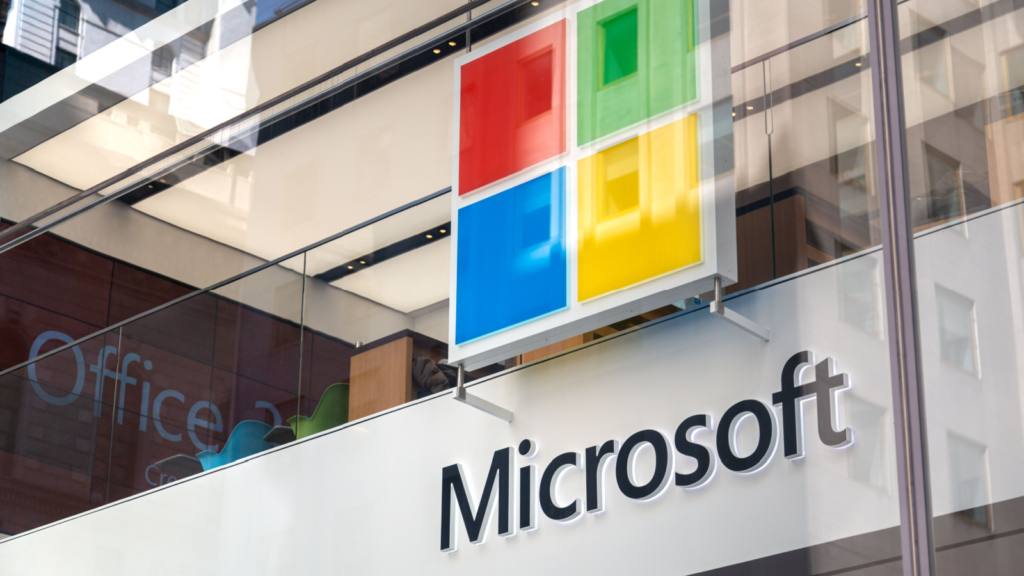
Microsoft (NASDAQ:MSFT) continues to find ways to reinvent itself some 37 years after its initial public offering. A $2.8 trillion business finds it challenging to swiftly alter its direction, but the tech giant manages to assert itself as a powerful force.
Its performance this year led it to be included in the group of tech stocks dubbed the Magnificent 7 that carried the stock market higher. Even with the recent pullback, Microsoft stock is still up 57% year to date (YTD). In comparison, the S&P 500 is up just 19% and the tech-heavy Nasdaq 100 index is up 46%.
It may be an industry behemoth, but its swift response to the recent turmoil that shook OpenAI shows the tech leader is capable of transforming itself to meet its future needs. The stock trades at deceptively lofty levels. Hence, the market really undervalues Microsoft stock.
Behind the AI hype
Microsoft was not going to let the tumult that erupted at artificial intelligence (AI) outfit OpenAI undermine the $13 billion it invested in the company. It immediately hired ousted CEO Sam Altman but also helped engineer his return to OpenAI. Then it made the board of directors that fired him resign.
Aside from the money at stake, the reason for Microsoft’s quick and granular involvement was that AI is critical to its future. The software company integrated OpenAI’s generative AI into many of its products and services. It sees the direction the technology is headed and aims to be at the forefront of the revolution.
OpenAI’s generative AI chatbot ChatGPT became a critical component of Microsoft’s Bing search engine. Also, it installed it within its Teams collaborative tools while making it integral to the Azure Cloud Services platform.
Additionally, Microsoft just unveiled two new chips specifically designed for AI, the Azure Maia 100 and Cobalt 100. They are the first custom silicon chips designed for its cloud infrastructure. These chips aim to reduce the company’s dependence on Nvidia’s (NASDAQ:NVDA) AI chips.
Head in the clouds
Cloud services are also a mission-critical platform for Microsoft. It is the second largest cloud stock with a 23% share of the market. That trails Amazon‘s (NASDAQ:AMZN) 32% share but is more than double Alphabet‘s (NASDAQ:GOOG)(NASDAQ:GOOGL) 11%. Yet, of the big three cloud stocks, Microsoft is the only one steadily growing. It increased its share by one percentage point over each of the past three quarters while Amazon and Google either remained flat or lost share.
Segment revenue jumped 23% to $32 billion in Microsoft’s fiscal first quarter. Gross margins widened to 73%, making the cloud business an extremely profitable venture.
A financial powerhouse
Microsoft is hitting on all cylinders. Cliche, perhaps, but true. Currency-adjusted revenue jumped 12% to $56.5 billion but operating profits rocketed 25% higher to $27 billion. Net profits were up 26% to over $22 billion.
The tech giant produced $63 billion in free cash flow (FCF) over the last 12 months, 6% more than for all of fiscal 2023. Even though capital expenditures keep rising, operating cash flows grow faster. It’s feasible to believe Microsoft will soon produce $100 billion in FCF annually. The growth already allows it to continuously increase its dividend every year.
In September, Microsoft raised the payout 10% to $0.75 per share. Since initiating the payout in 2014, it has increased the dividend by 10% a year on average.
Is Microsoft stock a buy?
Even at these elevated valuations, Microsoft is not overvalued. Although the stock trades at 36 times earnings, 13 times sales, and 44x FCF, sales and margins are still expanding. And, it keeps entering new verticals to create more opportunities for itself. Yet, its current valuation ratios exceed historical averages. Over the past 10 years, Microsoft’s PE has averaged around 30, with price-to-sales ratio at 8 and its P/FCF 26.
Regardless, I remain bullish on MSFT stock. AI is opening new doors for the tech leader. Its cloud services give it the financial wherewithal to expand while still rewarding shareholders with dividends and share buybacks. Maybe you’ll want to dollar-cost average into the stock, but you definitely want to be a part of this ongoing growth story.
On the date of publication, Rich Duprey did not hold (either directly or indirectly) any positions in the securities mentioned in this article. The opinions expressed in this article are those of the writer, subject to the InvestorPlace.com Publishing Guidelines.




